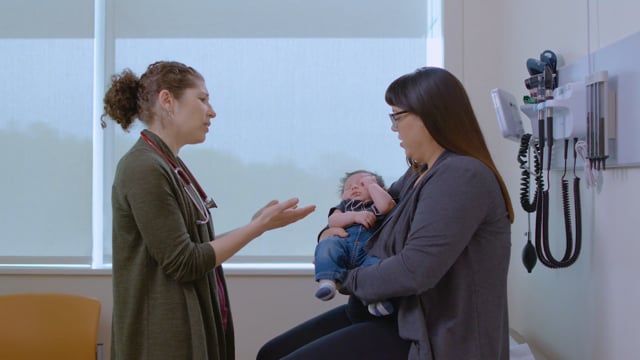Your Child's Vaccines: Hepatitis A Vaccine (HepA)
What Is the Hepatitis A Vaccine?
The hepatitis A vaccine (HepA) protects against hepatitis A, a contagious liver infection caused by the hepatitis A virus (HAV) virus. The vaccine is given in 2 shots at least 6 months apart.
HAV spreads mostly through the feces (poop) of people who are infected. People with hepatitis A can have no symptoms or they can feel very sick with fever, nausea, vomiting, and jaundice.
When Do People Get the HepA Vaccine?
The HepA vaccine is recommended for children 12–23 months old, who will get a second dose at least 6 months later. Babies as young as 6 months old also can get it if they will travel to a place where hepatitis A is common. They will still need the routine vaccination after their first birthday.
It’s also recommended for all older kids and adults who haven’t already gotten vaccinated, especially if they have a higher risk of getting infected (such as families who adopt a child from another country) or getting very sick with hepatitis A (such as people with chronic liver disease or HIV infection).
Anyone who hasn’t been vaccinated and has direct contact with someone who has hepatitis A should get the shot within 2 weeks after being exposed to avoid getting infected.
Why Is the HepA Vaccine Recommended?
The HepA vaccine doesn't just protects the kids who get it — it also can help prevent outbreaks. An outbreak is when a disease happens in greater numbers than expected in a particular area.
Childcare centers used to be a common site of hepatitis A outbreaks. Many kids who were infected did not have symptoms, so they easily spread the virus to others. Now that many young kids are getting vaccinated against hepatitis A, such outbreaks are less common. Outbreaks can still happen in other settings, though.
What Are the Possible Side Effects of the HepA Vaccine?
Side effects usually are mild, and can include a low fever, headache, tiredness, loss of appetite, and soreness or redness at the injection site. As with any vaccine, there is a small risk of fainting, and a very small chance of an allergic reaction.
The HepA vaccine contains a killed (inactivated) virus, so it can't cause hepatitis.
When to Delay or Avoid the HepA Vaccine
Simple colds or other minor illnesses should not prevent vaccination. Your doctor might reschedule the vaccine if your child has a more serious illness.
Talk to your doctor about whether the vaccine is a good idea if your child ever had a serious allergic reaction, or any allergic reaction after a previous dose of hepatitis A vaccine or to latex.
They may choose not to give the vaccine, or to postpone it until a later visit.
Caring for Your Child After the HepA Vaccine
For pain or fever, check with your doctor to see if you can give either acetaminophenoribuprofen, and to find out the right dose.
A warm, damp cloth or a heating pad on the site of the shot may help reduce soreness, as can moving or using the arm or leg.
When Should I Call the Doctor?
Call your doctor if:
- You aren't sure if the vaccine should be postponed or avoided.
- There are problems after the vaccination.

How Vaccines Help
Vaccines keep millions of people healthy each year by preparing the body to fight illness. Learn how vaccines help and get answers to your biggest questions about vaccines.


